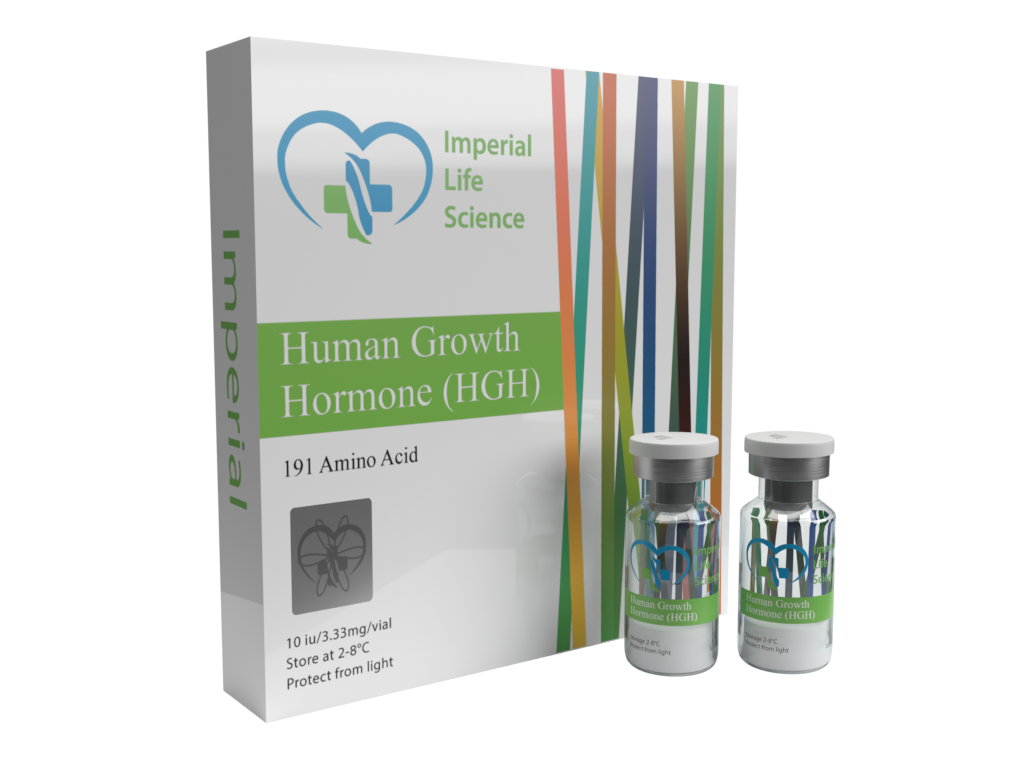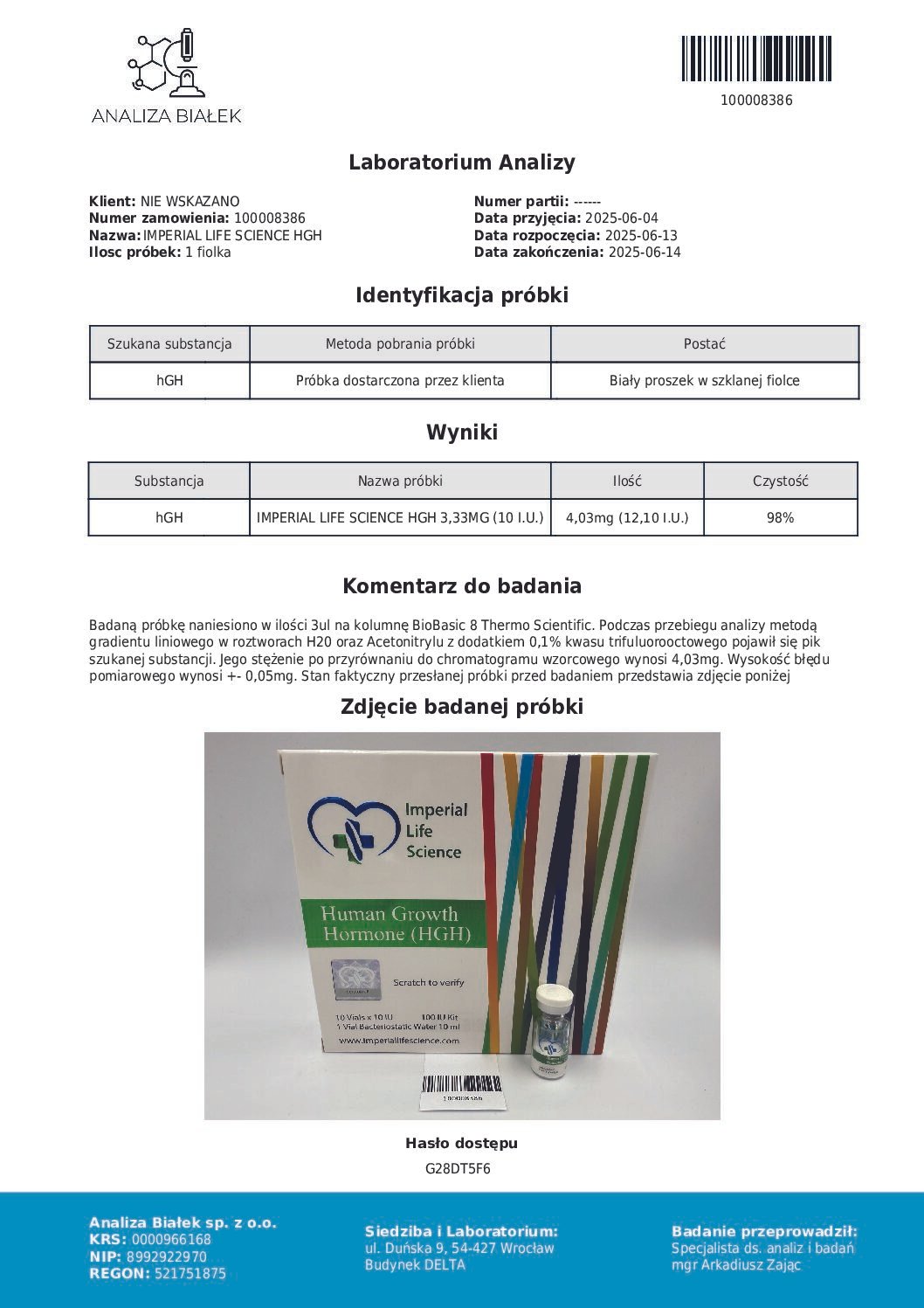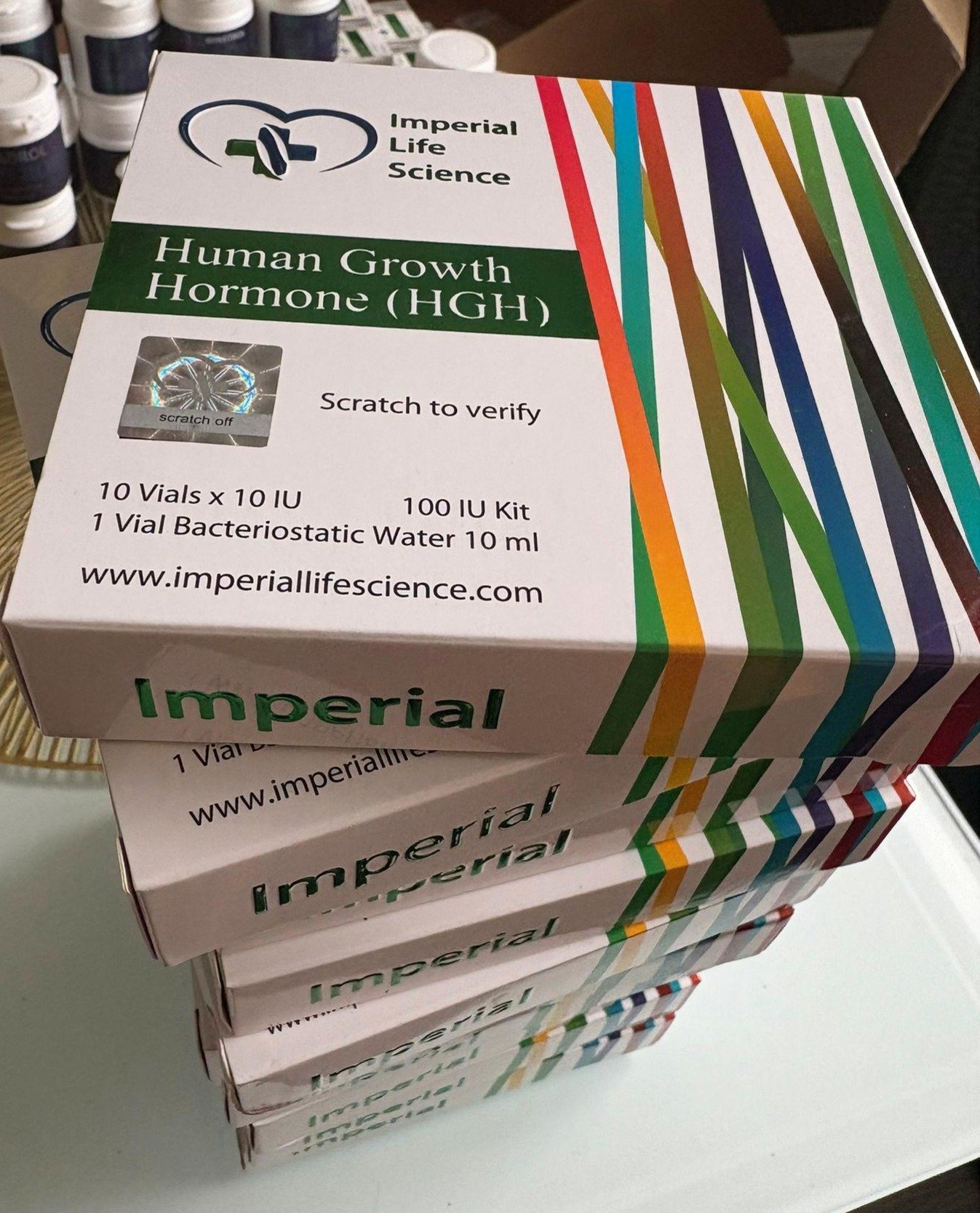Description
Growth hormone, also known as somatotropin or HGH (Human Growth Hormone), is an important peptide hormone responsible for regulating growth and development in the human body. It is secreted by the pituitary gland and plays a key role in many metabolic and physiological processes.
How growth hormone works:
Increased cell growth: Growth hormone acts on various tissues in the body, including bone and muscle tissue. It stimulates cell growth and division, which leads to increased muscle mass and tissue repair.
Metabolism: Growth hormone affects fat and carbohydrate metabolism. It increases the mobilization of fat from fat cells, which promotes the burning of fat tissue. At the same time, it reduces the absorption of glucose by cells, which can affect blood sugar levels.
Use in bodybuilding and martial arts:
Growth hormone is sometimes used in bodybuilding and combat sports as a doping agent to improve athletic performance and increase muscle mass. However, its use in sports is illegal and unethical, and anti-doping organizations conduct checks to detect such activities.
Regenerative effect and muscle fiber multiplication:
Growth hormone plays an important role in the regeneration and repair of muscle tissue. After intense training or muscle damage, growth hormone stimulates the multiplication and repair of damaged muscle fibers. Through a process known as hyperplasia, an increase in the number of muscle fibers can occur, which contributes to an increase in muscle mass.









Reviews
There are no reviews yet.